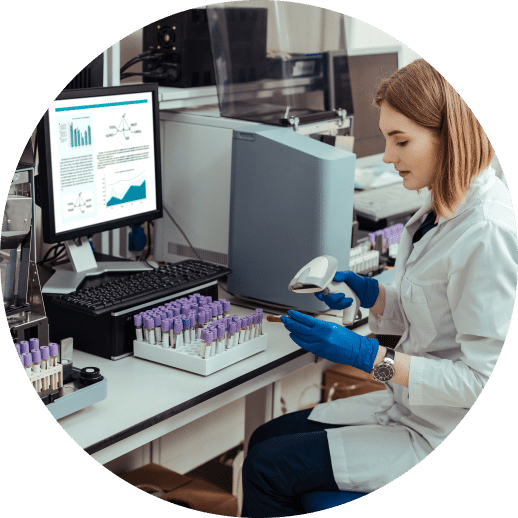Clinical Indication ID & Name
Neurofibromatosis type 1
Test Group
Neurology
Specialties
Test code
R222.1
Test name
N/A
Target genes
NF1; SPRED1
Test scope
n/a
Test method/ technology
Small panel
Optimal Family Structure
n/a
Eligibility Criteria
Clinical diagnosis of NF1, as defined below, AND molecular diagnosis is required for management of the proband or for reproductive planning
Diagnosis requires two of:
1. At least 6 café au lait macules (at least 0.5cm in a child and 1.5cm in an adult)
2. At least 2 subcutaneous or cutaneous neurofibromas
3. Plexiform neurofibroma
4. Optic glioma
5. At least 2 Lisch nodules
6. Bony dysplasia (sphenoid wing, long bone bowing, pseudarthrosis)
7. Family history of NF1
Test code
R222.2
Test name
N/A
Target genes
NF1; SPRED1
Test scope
n/a
Test method/ technology
MLPA or equivalent
Optimal Family Structure
n/a
Eligibility Criteria
Clinical diagnosis of NF1, as defined below, AND molecular diagnosis is required for management of the proband or for reproductive planning
Diagnosis requires two of:
1. At least 6 café au lait macules (at least 0.5cm in a child and 1.5cm in an adult)
2. At least 2 subcutaneous or cutaneous neurofibromas
3. Plexiform neurofibroma
4. Optic glioma
5. At least 2 Lisch nodules
6. Bony dysplasia (sphenoid wing, long bone bowing, pseudarthrosis)
7. Family history of NF1
Commissioning group
Specialised
Overlapping idications
• R236 Pigmentary skin disorders test should be used where clinical features are atypical and a broader range of genes is potentially causative • R27 Congenital malformation and dysmorphism syndromes – likely monogenic or R89 Ultra-rare and atypical monogenic disorders tests should be used in individuals with congenital malformations, dysmorphism or other complex or syndromic presentations
Address for samples/request forms
North Thames GLH, Rare & Inherited Disease Genomic Laboratory
Specimen Reception, Level 5 Barclay House, 37 Queen Square,
London WC1N 3BH
Contact with queries
Supporting documents
Rare Disese WGS Clinician pack
Education resources
n/a
Service updates
n/a
Request form download
Consent record
See consent guidance in test request form
Sample requirements
See sample guidance in test request form
